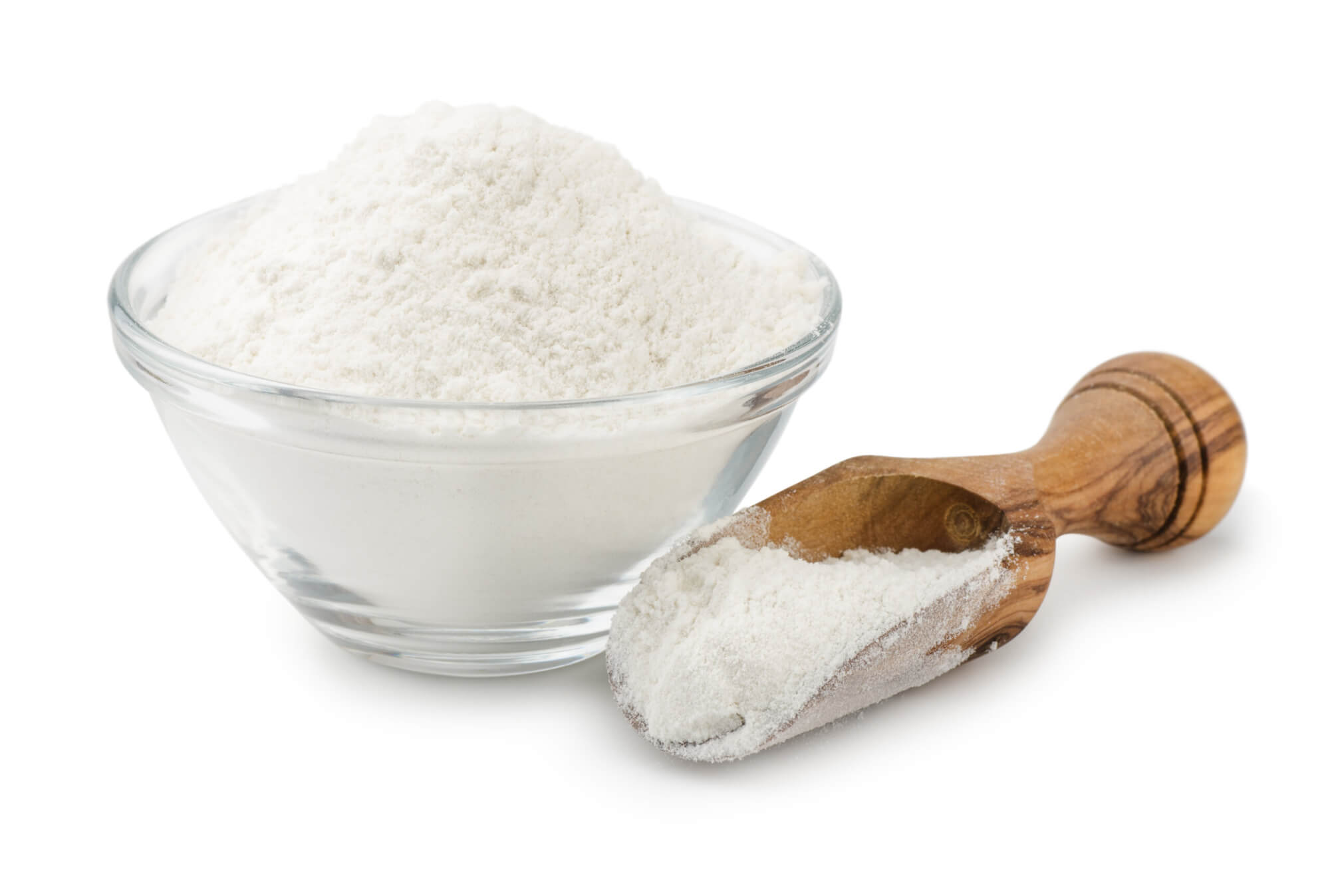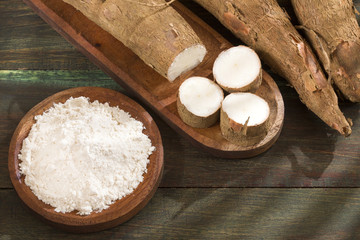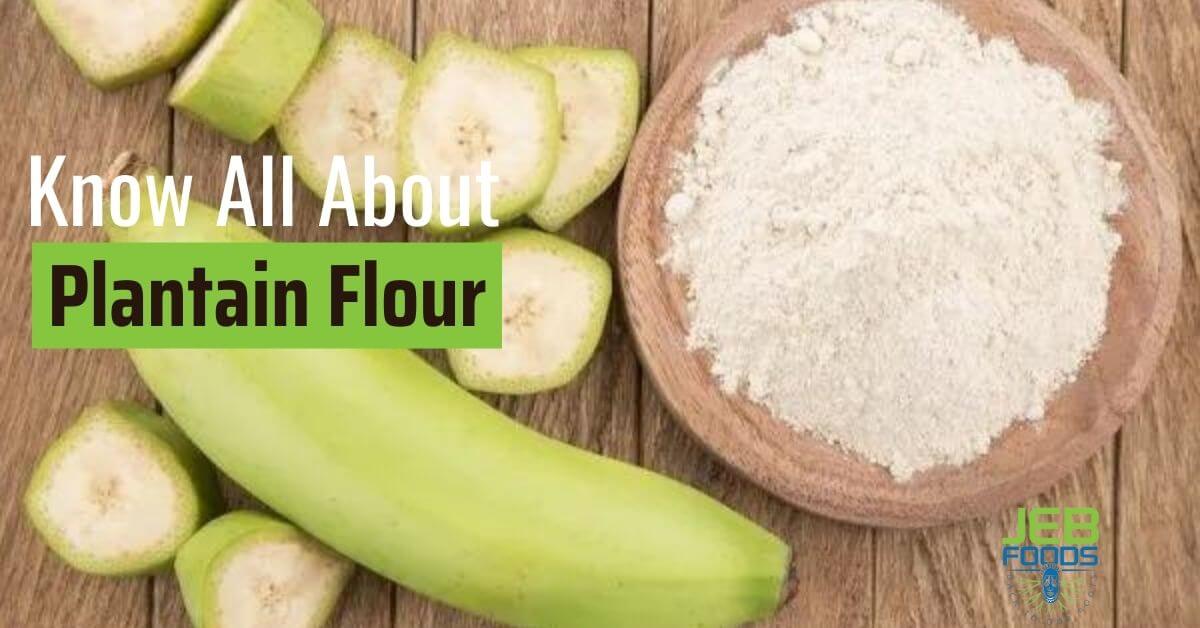A Comprehensive Guide to Its Uses, Benefits, Nutritious Recipes, and More
Table of Contents
Toggle
Table of Contents
Toggle
Table of Contents
1. What is Cassava Flour?
Cassava flour is a versatile and gluten-free flour made from the root of the cassava plant (Manihot esculenta), also known as yuca, manioc, or tapioca. It is a staple in many parts of the world, including Africa, Asia, and South America. Cassava flour is an excellent alternative to wheat flour, particularly for those with gluten sensitivities or following a grain-free diet.
2. Cassava Flour vs. Tapioca Flour
While both cassava and tapioca flours are derived from the cassava root, they are not the same. Cassava flour is made from the whole root, whereas tapioca flour is made from the starch extracted from the root. This leads to differences in texture and nutritional content. Cassava flour is more fibrous, has a nuttier flavor, and contains more nutrients than tapioca flour. Tapioca flour, on the other hand, is a refined starch that is mainly used as a thickening agent. Learn more about the differences between cassava and tapioca flour here.
3. Is Cassava Flour Gluten-Free?
Yes, cassava flour is gluten-free. This makes it an ideal choice for those with celiac disease, gluten sensitivity, or those following a gluten-free diet. As a versatile flour, cassava can be used in a variety of recipes, from bread to pastries.
4. Cassava Flour Nutrition
Cassava flour is rich in complex carbohydrates and provides a good source of energy. It also contains a moderate amount of fiber, which is essential for digestive health. While it is not as nutrient-dense as some other flours, cassava flour is low in fat and sodium, making it a healthier alternative to traditional wheat flour. Discover more about cassava flour’s nutritional information here.
5. Cassava Flour Benefits
Some of the key benefits of cassava flour include:
1. Gluten-Free: Ideal for those with gluten sensitivities or following a gluten-free diet.
2. Grain-Free: Suitable for those following a Paleo or grain-free diet.
3. Allergen-Friendly: Cassava flour is free of common allergens like nuts, soy, and dairy.
Versatile: Can be used in various recipes, including bread, pastries, and more.
Easily Digestible: The moderate fiber content in cassava flour aids digestion and promotes gut health.
6. Recipes with Cassava Flour
Cassava flour can be used in a variety of recipes, including gluten-free bread, pancakes, tortillas, and even pizza crust. Here are some delicious recipes to try:
Cassava Flour Pancakes Recipe
Cassava Flour Pizza Crust Recipe
Cassava Flour Tortillas Recipe
Cassava Flour Chocolate Chip Cookies Recipe
7. Cassava Flour Substitutes
If you don’t have cassava flour on hand or want to try other gluten-free options, consider using these substitutes:
Coconut flour: This high-fiber, low-carb flour is made from dried coconut meat. It’s ideal for baking but absorbs more liquid than cassava flour, so you may need to adjust your recipes accordingly.
Almond flour: Made from ground almonds, this flour is high in protein and healthy fats. Almond flour can be used in a variety of recipes but may require additional binding agents, such as eggs.
Rice flour: Made from finely ground rice, rice flour is a popular gluten-free option. It can be used in a variety of recipes but may result in a slightly different texture than cassava flour.
8. Cassava Flour FAQs
Q1: How is cassava flour different from other gluten-free flours?
A1: Cassava flour is made from the whole root of the cassava plant, is grain-free, and has a neutral flavor, making it distinct from other gluten-free flours.
Q2: What are the nutritional benefits of cassava flour?
A2: Cassava flour is rich in carbohydrates, providing a source of energy, and also contains vitamin C, potassium, and resistant starch.
Q3: Can cassava flour be used in traditional baking recipes?
A3: Yes, cassava flour can be used in traditional baking recipes, often as a one-to-one substitute for wheat flour, but some adjustments may be needed.
Q4: What is the shelf life of cassava flour?
A4: Cassava flour has a shelf life of about one year when stored in a cool, dry place.
Q5: How does cassava flour’s texture compare to wheat flour?
A5: Cassava flour has a fine texture similar to wheat flour, making it suitable for various recipes that require a smooth, fine texture.
Q6: Can cassava flour be used in savory dishes?
A6: Yes, cassava flour can be used in savory dishes, including soups, stews, and as a thickening agent.
Q7: What are the most popular recipes using cassava flour?
A7: Some popular recipes using cassava flour include bread, tortillas, pancakes, cookies, and cakes.
Q8: How does cassava flour’s protein content compare to other flours?
A8: Cassava flour has a lower protein content compared to other flours like wheat or almond flour.
Q9: Are there any specific storage instructions for cassava flour?
A9: Store cassava flour in an airtight container in a cool, dry place to maintain its freshness and prevent moisture absorption.
Q10: Can cassava flour be used in place of all-purpose flour?
A10: Cassava flour can often be used as a one-to-one substitute for all-purpose flour, but some adjustments may be required depending on the recipe.
Q11: What is the calorie count for cassava flour?
A11: Cassava flour has approximately 120 calories per 1/4 cup (32 grams).
Q12: Does cassava flour have any anti-nutrient properties?
A12: Cassava flour may contain some anti-nutrients like cyanogenic glycosides, but proper processing and preparation can significantly reduce their presence.
Q13: Is cassava flour a good source of vitamins and minerals?
A13: Cassava flour contains some vitamins and minerals, such as vitamin C and potassium, but its overall nutritional profile is not as rich as some other flours.
Q14: Can cassava flour be used to make pasta?
A14: Yes, cassava flour can be used to make gluten-free pasta, but it may require the addition of other gluten-free flours or ingredients to achieve the desired texture.
Q15: How does cassava flour impact blood sugar levels?
A15: Cassava flour has a high glycemic index, which means it can cause a rapid increase in blood sugar levels. However, its resistant starch content may help balance this effect.
Q16: Can cassava flour be used in vegan recipes?
A16: Yes, cassava flour can be used in vegan recipes as it is plant-based and does not contain any animal-derived ingredients.
Q17: Is cassava flour suitable for people with nut allergies?
A17: Cassava flour is generally safe for people with nut allergies, as it is grain-free and not derived from nuts.
Q18: What is the fiber content of cassava flour?
A18: Cassava flour contains about 2 grams of fiber per 1/4 cup (32 grams) serving, which is relatively low compared to some other gluten-free flours.
Q19: How does cassava flour work in recipes that require rising agents?
A19: Cassava flour can be used with rising agents such as baking powder or baking soda in recipes, but the final texture might be slightly different compared to using wheat flour.
Q20: Can cassava flour be used to make gluten-free beer?
A20: Cassava flour is not a typical ingredient in beer-making, but it has been used experimentally to produce gluten-free beer with mixed results.
Conclusion
In conclusion, cassava flour is a versatile and nutritious alternative to traditional wheat flour, making it a valuable resource for those following gluten-free, grain-free, or Paleo diets. As a root vegetable, cassava is an important food source for millions of people worldwide, particularly in Africa, Asia, and South America. The process of creating cassava flour involves peeling, washing, grating, and drying the roots before milling them into a fine powder.
Cassava flour has a neutral flavor and fine texture, making it an excellent substitute for wheat flour in many recipes. It can be used to make a variety of dishes, from pancakes and tortillas to pizza crusts and chocolate chip cookies. The flour is naturally gluten-free and free of common allergens like nuts, soy, and dairy. Its moderate fiber content also aids digestion and promotes gut health, making it a suitable option for individuals with sensitive digestive systems.
Cassava flour is not only a great alternative for those with gluten sensitivities or allergies but also an environmentally sustainable option. Cassava plants require less water and fertilizer than wheat, making them a more eco-friendly choice for farmers and consumers alike. In addition, cassava flour’s long shelf life and resilience to harsh growing conditions contribute to its sustainability and appeal.
When using cassava flour as a substitute for wheat flour, it’s essential to be aware of the differences in absorption and moisture levels. Cassava flour typically requires more liquid than wheat flour, so it’s important to adjust your recipes accordingly. If you’re new to baking with cassava flour, start by experimenting with tried and true recipes specifically designed for this flour before venturing out on your own.
For those who may not have access to cassava flour or prefer other gluten-free alternatives, there are several other options available, such as coconut flour, almond flour, and rice flour. Each of these substitutes has its unique properties and applications, so it’s crucial to research and understand how they can be used in your recipes.
Cassava flour is undoubtedly a valuable addition to the world of gluten-free baking and cooking, offering new possibilities for those with dietary restrictions or simply looking for healthier alternatives. As more and more people discover the benefits of cassava flour, it’s likely that its popularity will continue to grow.
In addition to its many culinary applications, cassava flour can play a role in global food security by providing a reliable and sustainable food source for people in developing countries. The resilience of cassava plants in the face of drought and pests, combined with their ability to grow in nutrient-poor soil, makes them an ideal crop for regions prone to food insecurity.
Ultimately, the versatility and nutritional benefits of cassava flour make it a valuable resource for individuals seeking gluten-free alternatives and a viable option for addressing global food challenges. As awareness of cassava flour continues to spread, its potential to transform the way we cook, bake, and eat is immense.
Whether you’re looking for a nutritious and delicious alternative to wheat flour or seeking to expand your culinary repertoire, cassava flour offers a world of possibilities. By incorporating this versatile ingredient into your diet, you can enjoy a wide range of delicious dishes while supporting sustainable agriculture and contributing to global food security. So, give cassava flour a try, and discover the countless benefits it has to offer.





